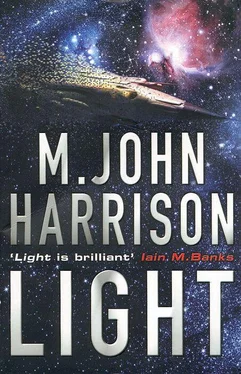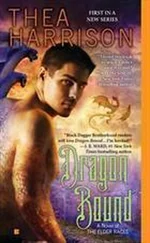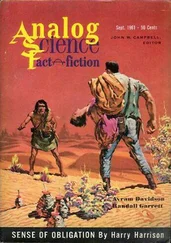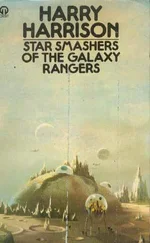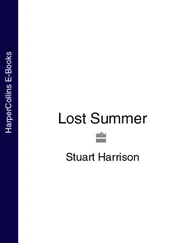'You ruined my life,' Kearney whispered.
'You ruined your own life,' said the Shrander, almost proudly.
Then it said: 'As a matter of interest, why did you murder all those women?'
'To keep you away from me.'
The Shrander seemed surprised at this.
'Oh dear. Didn't you realise it wasn't working?' Then it said: 'It hasn't been much of a life, has it? Why did you run so hard? All I wanted to do was show you something.'
'Take the dice,' Kearney begged, 'and leave me alone.'
Instead, the Shrander touched his shoulder. He felt himself lifted and moved until he hung above the breaking surf. He felt his limbs straightened firmly but gently as if by some expert masseur. He felt himself turn in the air, hunting like a compass needle. 'This way?' said the Shrander. 'No. This way.' And: 'You can forgive yourself now.' A curious sensation-freezing yet warm, like the first touch of an aerosol anaesthetic- propagated itself across his skin, then, penetrating him through every pore, raced about inside, unblocking every cul-de-sac he had driven himself into in his forty years, relaxing the sore, knotted lump of pain and frustration and disgust — as clenched and useless as a fist, as impossible to modify or evict — his conscious self had become, until he could see and hear and feel nothing but a soft velvety darkness. In this he seemed to drift, thinking of nothing. After some time a few dim points of light appeared. Soon there were more of them, and more after that.
Sparks, he thought, remembering Anna's sexual ecstasy. Sparks in everything! They brightened, congregated, pinwheeled up over him, then settled into the furious churning patterns of the strange attractor. Kearney felt himself fall into it, and come apart slowly, and begin to lose himself. He was nothing. He was everything. He flailed with his arms and legs, like a suicide passing the thirteenth floor.
'Hush,' the Shrander said. 'No more fear.' It touched him and said, 'You can open your eyes now.'
Kearney shivered.
'Open your eyes.'
Kearney opened his eyes. 'Too bright,' he said. Everything was too bright to see. The light roared in on him unconfined: he felt it on his skin, he heard it as a sound. It was light unburdened, light like a substance: real light. Great walls and arcs and petals of it hung and flickered, they hardened, they endured a moment, they tumbled and fell towards him, they somehow passed through him and were gone in a second, only to be replaced. He had no idea where he was. He felt the most extraordinary sense of surprise and wonder and delight.
He laughed.
'Where am I?' he said. 'Am I dead?'
The vacuum around him smelled of lemons. It looked like roses. He felt it tearing at him, inside and out. There was a horizon, but it seemed too curved, too close.
'Where is this? Are these stars? Is there anywhere really like this?'
Now the Shrander laughed too.
'Everywhere is like this,' it said. 'Isn't that something?' Kearney looked down and found it standing at his shoulder, a small fat thing the shape of a woman, perhaps five foot six in height, its maroon wool winter coat buttoned tightly, its great bone beak tilted up to face the roaring, toppling sky. He had the feeling it would have blinked, had there been any eyes in its sockets. 'That's the one thing we never seemed to get,' it said: 'How unpackable everything is.' Coloured ribbons fluttered and streamed from its shoulders in a completely invisible wind; while the hem of its coat trailed in the dust of some ancient rocky surface.
'Everywhere you look it unpacks to infinity. What you look for, you find. And you people can have it. All of it.'
The comfortable generosity of this offer puzzled Kearney, so he decided to ignore it. It seemed meaningless anyway. Then, staring up at the collapsing, constantly replaced towers of light, he changed his mind and began to wonder what he could offer in return. Everything he thought of was inappropriate. Suddenly he remembered the dice. He still had them. He extracted them carefully from their leather bag and offered them to the Shrander.
'I don't know why I took these,' he said.
'I wondered too.'
'Well anyway. Here they are.'
'They're only dice,' the Shrander said. 'People play some kind of game with them,' it added vaguely. 'But look, I did have a use for them. Why don't you just put them down?'
Kearney looked around. The surface they were standing on curved away, salted with dust, too bright to look at for long.
'On the ground?'
'Yes, why not? Just put them on the ground.'
'Here?'
'Oh, anywhere,' said the Shrander, making an offhand, liberal gesture. 'Anywhere they can be seen.'
'I'm dreaming, aren't I?' said Kearney. 'Dreaming or dead.'
He placed the dice carefully on the dusty rock. After a moment, smiling at the fears of his vanished self, he arranged them so that the emblem he knew as 'the High Dragon' faced upwards. Then he walked a little way away from them and stood on his own and turned up his face to the sky, where he imagined he could see among the clouds of stars and incandescent gas, the shapes of everything that had been in his life. He knew those things weren't there: but it wasn't wrong to imagine them. He saw pebbles on a beach. (He was three years old. 'Run here!' his mother called. 'Run here!' There was water in a bucket, cloudy with moving sand.) He saw a pool in winter, brown reeds emerging from the cat-ice at its margins. 'Your cousins are coming!' (He saw them run laughing towards him across the lawn of an ordinary house.) He even saw Valentine Sprake, looking almost human, in a railway carriage. In all of that he never saw Gorselands once: but over it all he thought he saw Anna Kearney's strong, determined face, guiding him to self-knowledge through the shoals of both their lives.
'You understand?' said the Shrander, which, having remained courteously silent through this process, now came to his side again and stared up in a companionable way. 'There will always be more in the universe. There will always be more after that.'
Then it admitted: 'I can't keep you alive for much longer, you know. Not here.'
Kearney smiled.
'I guessed,' he said. 'You mustn't worry. Oh look! Look!'
He saw the raging glory of the light. He felt himself slipping away into it, here in this fabulous place. He was so amazed. He wanted the Shrander to know. He wanted it to be certain he had understood.
'I've been here and seen this,' he said. 'I've seen it.'
He felt the vacuum empty him out.
Oh Anna, I've seen it.
THIRTY-TWO
Everywhere and No Place
What had happened inside the White Cat was this:
Seria Mau had gone up into the mathematical space, where the K-code ran without substrate in a region of its own. Everything else in the universe seemed to recede to a great distance. Things speeded up and slowed down at the same time. An actinic white light-sourceless yet directional-sprayed round the edges of every moving body. It was a space as lucid and intense and meaningless as one of Seria Mau's dreams.
'Why are you dressed like that?' the mathematics asked her in a puzzled voice.
'I want to know about this box.'
'It's so very dangerous to us all,' the mathematics said, 'for you to be here like this.'
'… so very dangerous,' echoed the shadow operators.
'I don't care,' said Seria Mau. 'Look.'
She raised her arms and offered up the box.
'It's very dangerous dear,' the shadow operators said. They picked nervously at their fingernails and handkerchiefs.
The code rushed out of Uncle Zip's box and merged with the code from the White Cat. Everything -box, giftwrap, and all-(dissolved into pixels, streamers, dark lights like non-baryonic matter, and blew past Seria Mau's upturned face at near-relativistic speeds. In the same instant, she felt the wedding dress catch fire. Her train melted. Her loving cherubs flashed to powder. The shadow operators covered their eyes with their hands and flung themselves about like dried leaves on a cold wind, their voices stretched and garbled by unknown space-time dilation effects. Suddenly everything was out of the box: every idea anyone had ever had about the universe was available, operating and present. The wires were crossed. The descriptive systems had collapsed into some regime prior to them all. The information supersubstance had broken loose. It was a moment of reinvention. It was the moment of maximum vertigo. Mathematics itself was loose, like a magician in a funny hat, and nothing could be the same again.
Читать дальше
